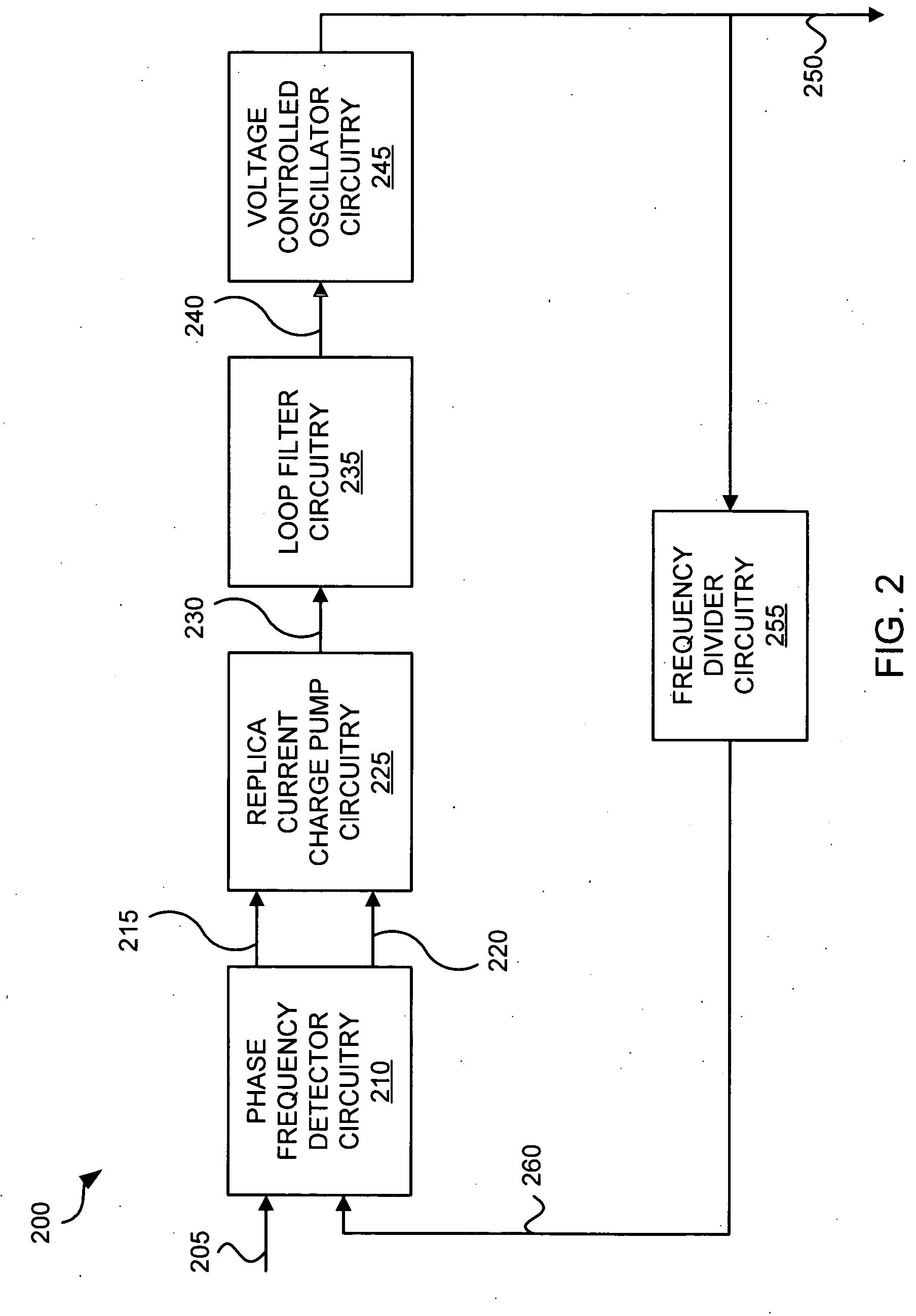Phase-locked loop circuitry using charge pumps with current mirror circuitry
a current mirror and circuitry technology, applied in the direction of pulse automatic control, electric devices, etc., can solve the problem that the magnitude of device leakage in deep submicron technology is often significantly larger than the actual signal being generated, so as to reduce off-state leakage, reduce off-state leakage, and reduce off-state leakage
- Summary
- Abstract
- Description
- Claims
- Application Information
AI Technical Summary
Benefits of technology
Problems solved by technology
Method used
Image
Examples
Embodiment Construction
[0027] The embodiments discussed herein are illustrative of one example of the present invention. As these embodiments of the present invention are described with reference to illustrations, various modifications or adaptations of the methods and / or specific structures described may become apparent to those skilled in the art. All such modifications, adaptations, or variations that rely upon the teachings of the present invention, and through which these teachings have advanced the art, are considered to be within the scope of the present invention. Hence, these descriptions and drawings should not be considered in a limiting sense, as it is understood that the present invention is in no way limited to only the embodiments illustrated.
[0028] A circuit implementation of the principles disclosed may be implemented using PMOS transistors alone, NMOS transistors alone, parallel combinations of PMOS and NMOS transistors, or other types of transistors. In some embodiments, the parallel c...
PUM
 Login to View More
Login to View More Abstract
Description
Claims
Application Information
 Login to View More
Login to View More - R&D
- Intellectual Property
- Life Sciences
- Materials
- Tech Scout
- Unparalleled Data Quality
- Higher Quality Content
- 60% Fewer Hallucinations
Browse by: Latest US Patents, China's latest patents, Technical Efficacy Thesaurus, Application Domain, Technology Topic, Popular Technical Reports.
© 2025 PatSnap. All rights reserved.Legal|Privacy policy|Modern Slavery Act Transparency Statement|Sitemap|About US| Contact US: help@patsnap.com



